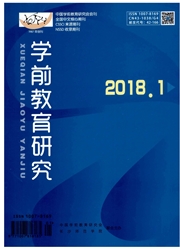

 中文摘要:
中文摘要:
不同来源的财富因其在人们心理的权重差异会导致对其消费态度与方式的不同。前人运用一系列行为实验已发现意外所得更容易消费、辛苦所得则不容易消费。基于心理账户和内隐社会认知等理论,运用IAT和ERP考察财富的意外所得与辛苦所得在人们心理引起的内在消费偏差,进而对内隐消费态度和脑加工机制进行间接检测。IAT研究结果表明,意外所得与容易消费的联结更加紧密,辛苦所得与不易消费的联结更加紧密,从内隐层面验证了前人的行为研究结论;ERP研究结果发现辛苦所得与意外所得这两个不同收入来源可能建立了不同脑加工机制,且在P3和LPC成分得到反映,P3成分可能是反映辛苦所得组偏好难消费型消费方式的ERP成分,LPC反映了意外所得收入条件下个体偏好易消费型消费方式的特点。
 英文摘要:
英文摘要:
Because of their different weight in people's mind, various sources of wealth can lead to diverse attitudes and ways of consumption. By carrying out a series of experiments, predecessors have found out that windfall gains are spent more readily than hard-earned money. Base on the theory of implicit social cognition and mental account, use the implicit association test (IAT) and ERP technology to explore the difference made on people's mind by windfall gains and hard-earned gains, thus give an indirect test for its implicit attitudes and brain processing mechanism. The IAT result shows that windfall gains is more closely connected with easy consumption, while hard-earned money is more closely connected with the difficult consumption, which verifies the predecessors' conclusion in the implicit level; The ERP technology also found hard-earned money and windfall gains may base on different brain processing mechanism, and reflected in P3 and LPC composition, P3 could be the direct ERP' components which reflects the hard-income group's preference to consumer consumption patterns, while LPC components reflects people's preference to consumption under an accidental income condition.
 同期刊论文项目
同期刊论文项目
 同项目期刊论文
同项目期刊论文
 期刊信息
期刊信息
